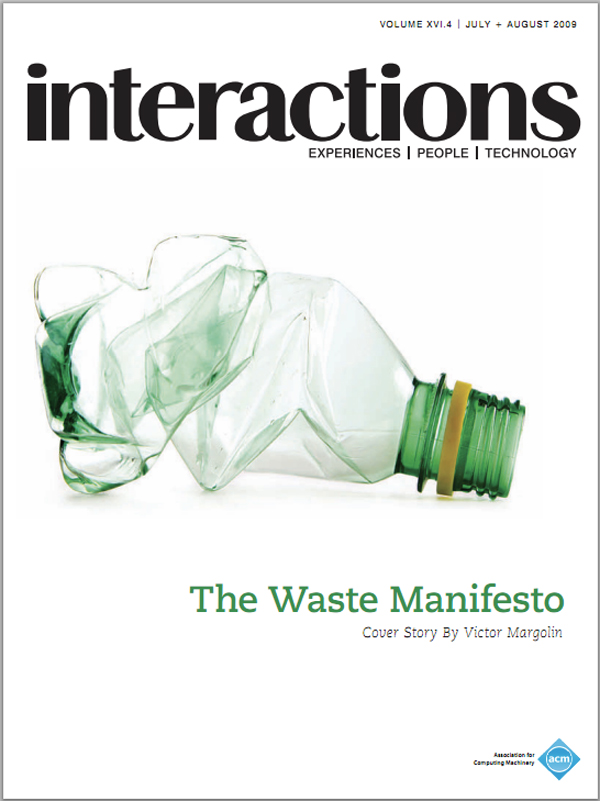Authors:
Victor Margolin
Waste is part of life. Human and animal bodies produce natural waste, whereas societies produce synthetic waste. While we cannot control the level of natural waste as its production is an organic part of biological survival, we can drastically reduce the production of synthetic waste. Natural and synthetic waste come in two varietiesreusable and nonreusable. The aim of a sustainable waste economy is to reuse as much waste as possible, even to the point of reducing waste surplus to zero. To accomplish this, we would need to create a flow-through society in which all wastenatural and syntheticis reused. The…
You must be a member of SIGCHI, a subscriber to ACM's Digital Library, or an interactions subscriber to read the full text of this article.
GET ACCESS
Join ACM SIGCHIIn addition to all of the professional benefits of being a SIGCHI member, members get full access to interactions online content and receive the print version of the magazine bimonthly.
Subscribe to the ACM Digital Library
Get access to all interactions content online and the entire archive of ACM publications dating back to 1954. (Please check with your institution to see if it already has a subscription.)
Subscribe to interactions
Get full access to interactions online content and receive the print version of the magazine bimonthly.







Post Comment
No Comments Found